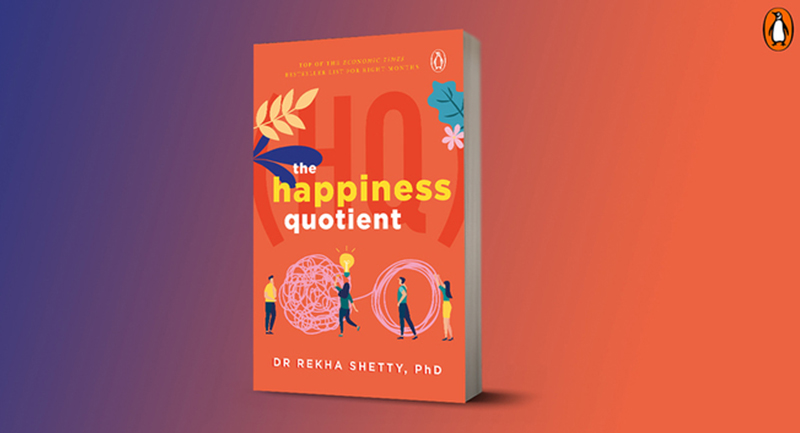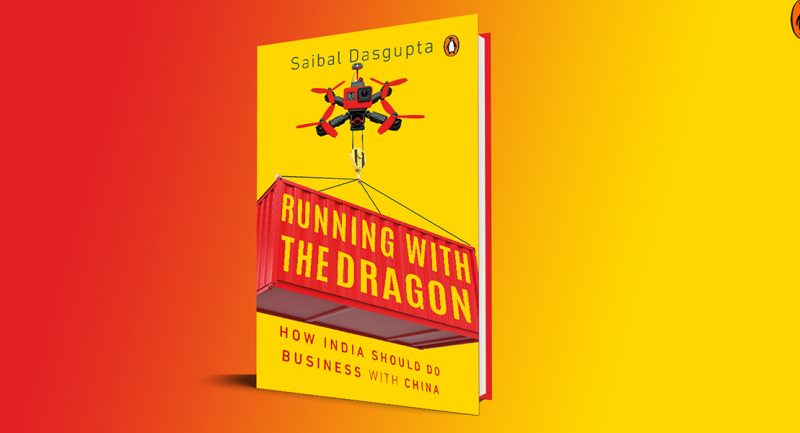Akhil Sharma’s works have been hailed as being “as hypnotic as those found in the pages of Dostoevsky” and a “glowing work of art” by leading publications in the world. In his new collection of short stories, ‘A Life of Adventure and Delight’, Sharma weaves eight unpredictable tales of the volatile human heart.
Here’s an excerpt from the book.
Late one June afternoon, seven months after my wedding, I woke from a short, deep sleep, in love with my husband. I did not know then, lying in bed and looking out the window at the line of gray clouds, that my love would last only a few hours and that I would never again care for Rajinder with the same urgency—never again in the five homes we would share and through the two daughters and one son we would also share, though unevenly and with great bitterness. I did not know this then, suddenly awake and only twenty-six, with a husband not much older, nor did I know that the memory of the coming hours would periodically overwhelm me throughout my life.
We were living in a small flat on the roof of a three-story house in Defense Colony, in New Delhi. Rajinder had signed the lease a week before our wedding. Two days after we married, he took me to the flat. I had thought I would be frightened entering my new home for the first time, but I was not. I felt very still that morning, watching Rajinder in his gray sweater bend over and open the padlock. Although it was cold, I wore only a pink silk sari and blouse, because I knew that my thick eyebrows, broad nose, and thin lips made me homely, and to win his love I must try especially hard to be appealing, even though I did not want to be.
The sun filled the living room through a window that took up half a wall and looked out onto the concrete roof. Rajinder went in first, holding the heavy brass padlock in his right hand. In the center of the room was a low plywood table with a thistle broom on top, and in a corner three plastic folding chairs lay collapsed on the floor. I followed a few steps behind Rajinder. The room was a white rectangle. Looking at it, I felt nothing. I saw the table and broom, the window grille with its drooping iron flowers, the dust in which we left our footprints, and I thought I should be feeling something, some anxiety, or fear, or curiosity. Perhaps even joy.
“We can put the TV there,” Rajinder said softly, standing before the window and pointing to the right corner of the living room. He was slightly overweight and wore sweaters that were a bit large for him. They made him appear humble, a small man aware of his smallness. The thick black frames of his glasses, his old-fashioned mustache, as thin as a scratch, and the fading hairline created an impression of thoughtfulness. “The sofa before the window.” At that moment, and often that day, I would think of myself with his smallness forever, bearing his children, going where he went, having to open always to his touch, and whatever I was looking at would begin to waver, and I would want to run. Run down the curving dark stairs, fast, fast, through the colony’s narrow streets, with my sandals loud and alone, until I got to the bus stand and the 52 came, and then at the ice factory I would change to the 10, and finally I would climb the wooden steps to my parents’ flat and the door would be open and no one would have noticed that I had gone with some small man.
I followed Rajinder into the bedroom, and the terror was gone, an open door now shut, and again I felt nothing, as if I were marble inside. The two rooms were exactly alike, except the bedroom was empty. “And there, the bed,” Rajinder said, placing it with a slight wave of his hand against the wall across from the window. He spoke slowly and firmly, as if he were describing what was already there. “The fridge we can put right there,” at the foot of the bed. Both were part of my dowry. Whenever he looked at me, I either said yes or nodded my head in agreement. We went outside and he showed me the kitchen and the bathroom, which were connected to the flat but could be entered only through doors opening onto the roof.
From the roof, a little after eleven, I watched Rajinder drive away on his scooter. He was going to my parents’ flat in the Old Vegetable Market, where my dowry and our wedding gifts were stored. I had nothing to do while he was gone, so I wandered in and out of the flat and around the roof. Defense Colony was Raj composed of rows of pale two- or three-story buildings. A small park, edged with eucalyptus trees, was behind our house.
Rajinder returned two hours later with his elder brother, Ashok, and a yellow van. It took three trips to bring the TV, the sofa, the fridge, the mixer, the steel plates, and my clothes. Each time they left, I wanted them never to return. Whenever they pulled up outside, Ashok pressed the horn, which played “Jingle Bells.” I was frightened by Ashok, because, with his handlebar mustache and muscular forearms, he reminded me of my father’s brothers, who, my mother claimed, beat their wives. Listening to his curses drift out of the stairwell each time he bumped against a wall while maneuvering the sofa, TV, and fridge up the stairs, I felt ashamed, as if he were cursing the dowry and, through it, me.
On the first trip they brought back two suitcases that my mother had packed with my clothes. I was cold, and when they left, I changed in the bedroom. My hands were trembling by then, and each time I swallowed, I felt a sharp pain in my throat that made my eyes water. Standing there in the room gray with dust, the light like cold, clear water, I felt sad and lonely and excited at being naked in an empty room in a place where no one knew me. I put on a salwar kameez, but even completely covered by the big shirt and pants, I was cold. I added a sweater and socks, but the cold had slipped under my skin and lingered beneath my fingernails.
Rajinder did not appear to notice I had changed. I swept the rooms while the men were gone, and stacked the kitchen shelves with the steel plates, saucers, and spoons that had come as gifts.
Get your copy of Akhil Sharma’s delightful new book here!










